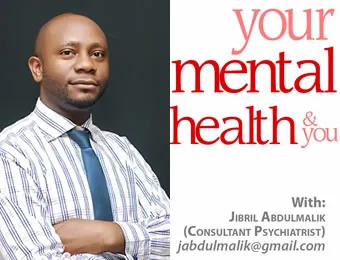



The very first step towards suicide prevention is identifying the warning signs of suicidal behaviour. While some suicide deaths are impulsive reactions, 80 per cent of those who eventually commit suicide would have given some signs of their intentions before they eventually carry it out. These signs include expressions such as “I am not good enough”, “I simply can’t cope” and “Everyone will be better off without me”.
Other signs may include expressing hopelessness, giving out valuables or talking about what to do if they are no longer alive, loss of interest in planning for the future, social withdrawal and isolation, turning to drugs and alcohol to drown sorrows, history of impulsiveness or previous suicide attempt. Access to means should also be a source of concern – such as owning a gun. When several of these signs are present in an individual, the risk of suicidal behaviour is high.
ALSO READ: Governors meet over minimum wage, Paris Club refund, others
What should we do if we recognise these warning signs?
Individuals: At the individual level, if you recognise these signs and suspect the individual is at risk, do not dismiss your suspicions. Do not leave them alone, but ensure someone is with them at all times. Let them know you are concerned about them. Condition yourself to listen to them, rather than reprimanding them and delivering sermons. Do not show alarm or exhibit judgmental behaviour. Ask specific questions to find out if they are actively planning to do something.
Presence of specific planning is an indication of serious intent and should instantly be a red flag to take action. Even if you cannot do all of the above steps, simply recognising that the person is going through emotional pain and providing a listening ear, is quite helpful. Reassure them that there is no need to be ashamed or embarrassed, as it is not a sign of weakness or cowardice.
Lastly, please go the extra mile to ensure they get a professional evaluation from a qualified mental health professional (psychiatrist or clinical psychologist). DO ENSURE THEY RECEIVE PROFESSIONAL CARE to help them navigate the maze of emotional pain they may be going through, and receive adequate treatment for their depression.
Community: At the community level, public awareness and education to understand suicide and other mental health challenges as well as reducing the associated pervasive stigma is helpful. This should lead to an increase in help-seeking behaviour and the utilisation of mental health care services, which are readily available in most teaching hospitals as well as the Neuropsychiatric Hospitals. Improved access and availability of mental health professionals in all healthcare facilities should be a government priority.
Media: The media has an important role to play in suicide prevention. Splashing all the gory details of a suicide – and thus inadvertently glamourising it, should be avoided as much as possible. While it is necessarily important news, such sad occurrences also provide an important avenue to provide education about risk factors and where to seek help. Emphasis should be on the fact that individuals, who are depressed, can recover and turn things around in their life…with professional help and treatment.
The privacy of family members should be protected, and efforts to reduce associated stigma amplified. Lastly, the media has a duty to prevent the ‘Werther Effect’ or copycat suicides, following a widely-publicised suicide.
Schools: The school environment should allow all students to flourish, learn and develop – regardless of their individual temperaments or dispositions. Bullying, taunting and public humiliations can be devastating for adolescents with fragile egos and low self-esteem.
Social Support Network: Lastly, having a support network such as friendly and caring neighbours; religious support groups; a close circle of friends and colleagues at work; and involvement in social activities are also helpful and protective. We should all reach out to people we interact with every day and never assume that a smile and being jovial implies that everything is alright. Showing empathy, concern and genuine interest is critical to ameliorating the harrowing feelings of loneliness and anguish that predispose to suicide.
In conclusion, your mental health is in your hands. Let us all watch out for our emotional wellbeing, as well as that of everyone we interact with at home, in the neighbourhood and at work. Times are difficult and frustrations are rife, but as human beings, everyone appreciates a helping hand when they are down. Let us cultivate the habit of being there for each other – thus promoting our mental health and reducing the tendencies towards suicidal behaviour.
The Minister of State for Agriculture and Food Security, Sen. Aliyu Abdullahi Sabi has said…
Former Minister of Sport and Youth Development and member of the African Democratic Congress (ADC),…
Following Vice-President Kashim Shettima’s declaration positioning cassava as Nigeria’s next strategic export commodity, agribusiness leader…
A former Secretary to the Government of the Federation SGF), Babachir Lawal has shed light…
The All Progressives Congress (APC), on Monday in Abuja, began the sales of nomination and…
The Independent National Electoral Commission (INEC), Osun State Office on Monday announced update on preparations…
This website uses cookies.